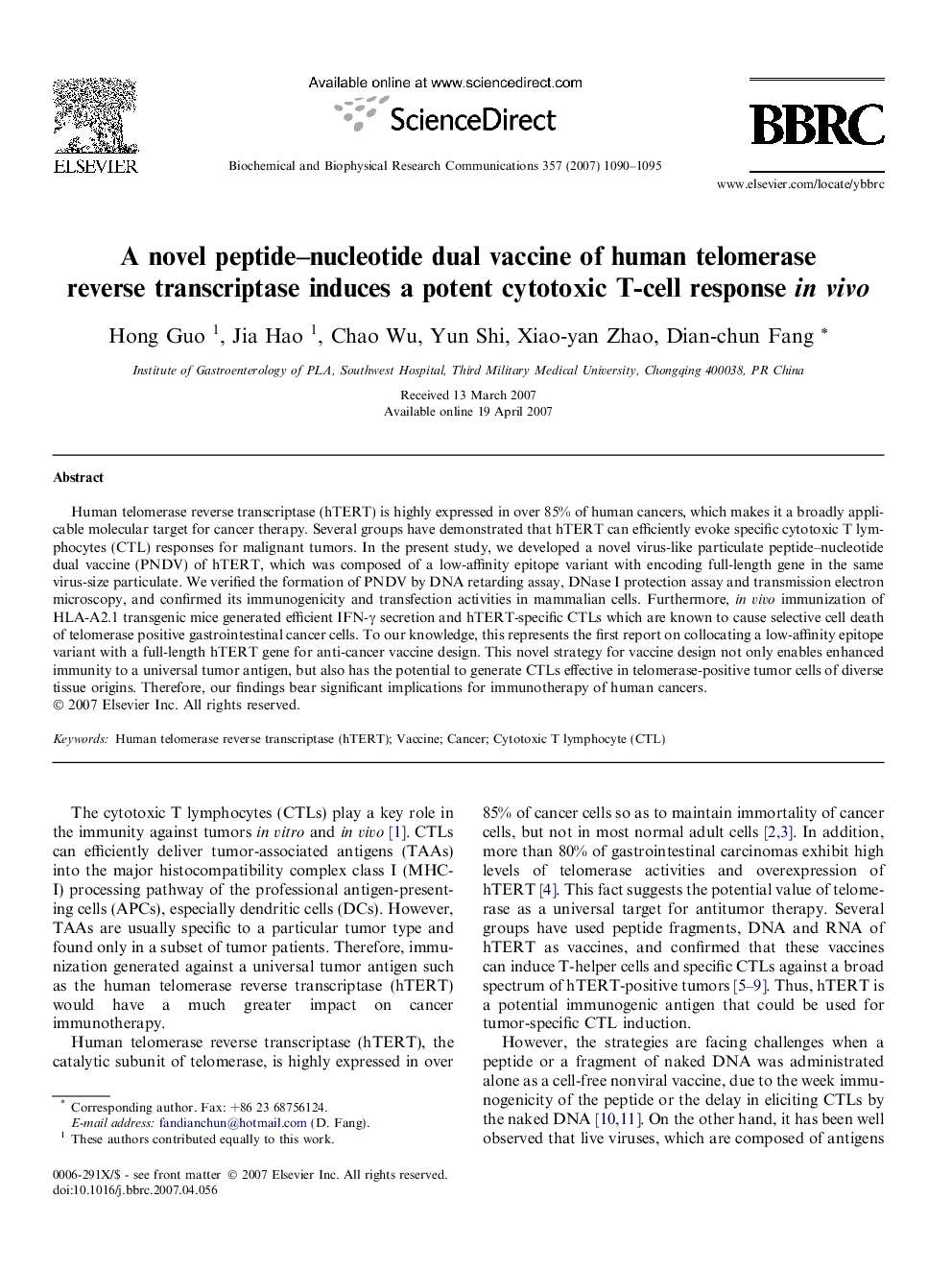| Article ID | Journal | Published Year | Pages | File Type |
|---|---|---|---|---|
| 1937981 | Biochemical and Biophysical Research Communications | 2007 | 6 Pages |
Human telomerase reverse transcriptase (hTERT) is highly expressed in over 85% of human cancers, which makes it a broadly applicable molecular target for cancer therapy. Several groups have demonstrated that hTERT can efficiently evoke specific cytotoxic T lymphocytes (CTL) responses for malignant tumors. In the present study, we developed a novel virus-like particulate peptide–nucleotide dual vaccine (PNDV) of hTERT, which was composed of a low-affinity epitope variant with encoding full-length gene in the same virus-size particulate. We verified the formation of PNDV by DNA retarding assay, DNase I protection assay and transmission electron microscopy, and confirmed its immunogenicity and transfection activities in mammalian cells. Furthermore, in vivo immunization of HLA-A2.1 transgenic mice generated efficient IFN-γ secretion and hTERT-specific CTLs which are known to cause selective cell death of telomerase positive gastrointestinal cancer cells. To our knowledge, this represents the first report on collocating a low-affinity epitope variant with a full-length hTERT gene for anti-cancer vaccine design. This novel strategy for vaccine design not only enables enhanced immunity to a universal tumor antigen, but also has the potential to generate CTLs effective in telomerase-positive tumor cells of diverse tissue origins. Therefore, our findings bear significant implications for immunotherapy of human cancers.
